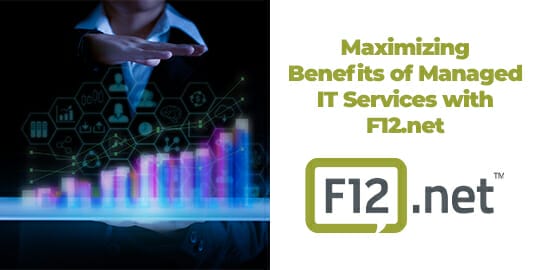
Table of Contents:
- The Rising Importance of Managed IT Services
- The Role Of Cloud Computing In Managed Services
- Beyond Basic IT: Strategic Partnership With A Managed Service Provider
- Navigating Digital Transformation With Managed Services
- Maximizing Business Focus with Managed IT Services
- The Role of Managed Service Providers in Business Growth
- Unlocking Cost Efficiency with Managed IT Services
- Averting Infrastructure Expenditure through Managed Services
- Leveraging Predictable Costs For Business Advantage
- Boosting Efficiency with Proactive IT Support
- Remote Monitoring: The Pillar of Productivity
- Ahead Of The Curve: Preventive Measures For Maximum Uptime
- Securing Your Business in the Digital Age with Managed Security Services
- Cybersecurity: A Non-Negotiable Factor in Today’s Business Operations
- The Role of Proactive Monitoring in Reducing Security Risks
- FAQs in Relation to Benefits of Managed IT Services
- How can managed IT services help your business?
- What are managed IT services and why do you need them?
- What are the benefits of managed network services?
- What are the advantages of moving to a managed service structure for IT?
- Conclusion
The Rising Importance of Managed IT Services
In the digital age, Information Technology (IT) has become as indispensable to business as electricity. Just as you rely on electricity without understanding the intricate workings of the electrical grid, you count on IT to function smoothly without mind to its complexity. And, just as businesses outsource their electrical needs, many now look to the benefits of managed IT services for their technology needs.
Key to this story are Managed Service Providers, also called MSPs. Managed service providers offer a comprehensive suite of services catering to various aspects of an organization’s technology infrastructure – from network management and cloud computing solutions to cybersecurity and data recovery.
In today’s ever-changing technology landscape, managed IT services have become more than optional add-ons; they’ve become necessities to stay competitive. One significant factor driving this change has been the advent of cloud computing, which revolutionized how businesses operate by offering scalable resources on demand without requiring significant upfront investments or ongoing maintenance costs.
The Role Of Cloud Computing In Managed Services
Cloud computing offers immense value when it comes down to what a managed service provider can offer. Hosting applications and storing data on remote servers rather than local machines allow businesses greater flexibility and scalability while greatly reducing hardware and facility costs.
A proficient managed service provider guides organizations through different public, private, or hybrid models based on specific needs and budget constraints, ensuring smooth migration with minimal disruption to daily operations.
Beyond Basic IT: Strategic Partnership With A Managed Service Provider
Aligning your tech strategy with broader goals involves a strategic partnership with a reliable MSP who becomes an extension of your team, helping leverage new technologies effectively and mitigating associated risks. For instance, planning an expansion into new markets with your MSP ensures a seamless scale-up. Or, navigating regulatory changes impacting privacy norms in different regions with experts reduces compliance risk. A proactive approach to IT evolution gives peace of mind, knowing professionals are looking out for your future interests.
Navigating Digital Transformation With Managed Services
As we journey through digital transformation amid growing cyber threats and complex regulations, having expert guidance on hand is invaluable. An MSPs experience can be pivotal in implementing advanced systems, process automation, and robust security protection. With rapid technological advancements and increased reliance on digital platforms across sectors like finance, law, and manufacturing, guidance is needed now more than ever.
Key Takeaway:
Managed IT services are no longer optional but essential for businesses to stay competitive. They provide comprehensive tech solutions, from network management to data recovery, with cloud computing pivotal in cost reduction and scalability. Strategic partnerships with reliable MSPs ensure seamless digital transformation journeys amid growing cyber threats and complex regulations.
Maximizing Business Focus with Managed IT Services
Concentrating on your core operations is the key to business success. Maintaining an in-house IT department can distract from your core challenges. Therefore, engaging the services of a managed service provider such as F12.net helps regain focus.
Managed IT services is a great asset to business leaders, taking the strain of IT management off their shoulders and allowing them to focus on other strategic areas essential for success. A reliable managed service provider like F12.net takes over handling all your IT needs so you can focus on what matters most – growing your business.
The Role of Managed Service Providers in Business Growth
An effective MSP does more than provide tech support; they become an integral part of your team dedicated to supporting and driving business growth. By aligning their services with your development plans, they make sure that your infrastructure has the capability and capacity to support your growth.
This alignment involves understanding not only how technology supports existing operations but also how it fuels future strategies. An adept MSP will work closely with clients to understand these objectives and tailor solutions accordingly.
F12.net excels at this by offering experienced business technology leaders, or Virtual CIOs, to design solutions around specific goals or opportunities tailored to an organization’s unique requirements. They balance delivering value through innovation and ensuring stability within existing systems – a necessary combination for sustainable growth.
Beyond Technical Support: Strategic Partnership
A competent MSP goes beyond technical support; it becomes a strategic partner contributing significantly to long-term success. This lies in the power of effective partnerships, openly sharing observations, insights, and experience to help guide and manage change. This is something F12.net specializes in doing successfully across various industries. Their expert teams use advanced tools, methodologies, best practices, industry insights, and years of experience to help optimize performance and reduce risks associated with operational challenges.
One major advantage of partnering with top-notch providers is significant cost savings. This further enhances the potential for rapid and scalable expansion without burdening financial resources excessively.
Key Takeaway:
The managed IT services F12.net provides liberate businesses from the complexities of in-house IT, allowing them to focus on core operations and growth. Beyond just tech support, they offer strategic partnerships that align with business objectives, deliver innovative solutions tailored to unique needs, optimize performance and reduce risks.
Unlocking Cost Efficiency with Managed IT Services
The strategic deployment of managed services can be a game-changer in the quest for cost efficiency. By teaming up with a seasoned provider like F12.net, businesses can realize substantial cost savings and elevate their operational performance.
Averting Infrastructure Expenditure through Managed Services
Traditional on-premise IT infrastructures often come saddled with hefty initial investments encompassing hardware, software, and facilities. These are typically followed by ongoing maintenance costs that create financial pressure over time.
In contrast to this model is Device as a Service and Subscription IT services offered by mature Managed Service Providers (MSPs) like F12.net. They shoulder your network infrastructure management responsibilities, including servers, storage systems, networking equipment, and application software.
This approach sidesteps significant capital outlays associated with technology acquisition and upkeep. Instead of these unpredictable expenses, businesses pay a predictable monthly fee based on usage or per-user pricing models typical of MSP offerings. This shift from CapEx to OpEx provides better budget control, eliminating unexpected tech-related surprises.
Beyond just managing existing resources, an MSP also ensures you’re always running the latest technologies without worrying about system upgrades or replacements – those become part of the MSP‘s duties, too.
Leveraging Predictable Costs For Business Advantage
Predictability in expenditure isn’t merely about controlling costs; it’s also crucial for accurate budget planning. CFOs and finance teams appreciate knowing exactly what they’ll spend each month. It eliminates unforeseen disruptions that could impact cash flow profitability projections while allowing more flexibility in allocating resources towards growth-oriented initiatives rather than mere sustenance.
Moreover, adopting managed services directly leads to productivity gains, translating into additional cost savings. When technical issues arise, they’re usually addressed faster under an MSP model thanks to dedicated support teams available round-the-clock across different time zones, ensuring minimal downtime if any problem occurs. This lowers repair costs and prevents revenue loss due to non-productive hours caused by system glitches and breakdowns.
In essence, engaging reputable MSSPs offers multiple pathways for efficient cost management, coupled with
Key Takeaway:
With F12.net’s managed IT services, businesses can sidestep hefty infrastructure costs and switch from unpredictable CapEx to manageable OpEx. This provides better budget control, boosts productivity, reduces downtime and fosters growth-oriented initiatives. It’s a win-win for cost efficiency and operational performance.
Boosting Efficiency with Proactive IT Support
The digital era demands businesses to be agile and productive, which can only be achieved by minimizing downtime. A Managed Service Provider (MSP) like F12.net, offering proactive support, is the key to ensuring smooth business operations.
Remote Monitoring: The Pillar of Productivity
An MSP‘s role extends beyond just troubleshooting; it includes continuous remote monitoring and network administration for faster response times during technical difficulties. This early detection system allows issues to be resolved before they impact your day-to-day activities.
F12.net provides dedicated teams working round-the-clock across various time zones that keep a vigilant eye on your systems at all times. This level of commitment ensures high levels of productivity while reducing potential risks in your network infrastructure.
In addition, regular health checks are conducted as part of preventive maintenance measures aimed at identifying vulnerabilities that could lead to significant problems if left unchecked – an essential factor in achieving seamless operation within today’s fast-paced business environment.
Ahead Of The Curve: Preventive Measures For Maximum Uptime
Moving beyond immediate problem-solving, genuine proactive support focuses on preventing those problems from occurring altogether. An efficient MSP will implement robust security protocols designed to react swiftly when breaches occur and, more importantly, prevent them by detecting possible points of entry beforehand.
This combined strategy results in optimal uptime rates – another critical component driving increased organizational productivity. With F12.Net providing this level of 24/7 assistance, it gives peace of mind knowing their networks are secure and well-maintained, freeing up internal resources to focus on other strategic initiatives.
Considering these benefits, we now delve deeper into how partnering with an MSP offering strong cybersecurity solutions contributes towards safeguarding valuable data while reducing associated risks.
Key Takeaway:
With F12.net’s proactive IT support and preventive measures, businesses can stay ahead of the curve. Their dedicated teams ensure minimal downtime and maximum productivity by monitoring systems 24/7, detecting issues early on, and implementing robust security protocols to prevent breaches.
Securing Your Business in the Digital Age with Managed Security Services
In a world where cyber threats are rampant, managed service providers (MSPs) like F12.net offer robust cybersecurity solutions that ensure data security compliance and reduce risks.
This means having expert teams proactively monitor your network for suspicious activities or potential vulnerabilities. They act swiftly when issues arise, preventing significant damage from occurring.
Cybersecurity: A Non-Negotiable Factor in Today’s Business Operations
Data security compliance is not just about avoiding penalties but protecting customer trust and safeguarding business reputation. Regulatory bodies worldwide require strict adherence to specific standards for handling sensitive information.
- Maintaining Compliance: MSPs help navigate complex regulations by ensuring systems meet all requirements.
- Avoid penalties: Regular audits conducted by experienced IT professionals prevent non-compliance consequences.
- Safeguarding Trust: Ensuring data privacy builds confidence among customers.
The Role of Proactive Monitoring in Reducing Security Risks
An effective way MSPs minimize risk is through proactive monitoring strategies. This involves continuously scanning networks, identifying anomalies early on, and taking swift action before they escalate into full-blown crises. The following techniques form part of this strategy:
- Vulnerability assessments frequently detect weaknesses within the network infrastructure which could be exploited.
- Patch management ensures software tools remain up-to-date, fixing known vulnerabilities.
- Firewall configuration & maintenance provides a first line of defence against unauthorized access attempts.
- User training programs educate employees on safe online practices, minimizing human error exploits.
All these factors combined make outsourcing IT needs, especially cybersecurity, to expert providers like F12.net a wise decision. Not only does this approach free up internal resources, allowing them to focus more on core business tasks, but it also provides peace of mind, knowing that professional experts are keeping a vigilant watch over the company’s digital assets 24/7.
Key Takeaway:
With F12.net’s managed IT services, businesses can fortify their cybersecurity, ensuring data compliance and reducing risks. Proactive network monitoring, regular audits, user training programs, and more help safeguard your digital assets around the clock while freeing up internal resources to focus on core tasks.
FAQs about Benefits of Managed it Services
How can managed IT services help your business?
Managed IT services streamline operations, improve productivity, and reduce costs by handling complex tech tasks. They also bolster cybersecurity and ensure data compliance. Put together, managed IT services free business leaders to focus more time and energy toward achieving their vision.
What are managed IT services, and why do you need them?
Managed IT services provide outsourced management of a company’s technology needs. Businesses need them to stay competitive, minimize downtime, control costs effectively, and secure data.
What are the benefits of managed network services?
The benefits include reduced infrastructure costs, improved network security, and increased uptime through proactive support and monitoring systems running 24/7 across different time zones.
What are the advantages of moving to a managed service structure for IT?
Moving to a managed service structure allows businesses to focus on core competencies while experts handle their tech needs. It offers predictable expenses with cost savings from reduced capital expenditures on technology adoption and maintenance.
Conclusion
The rising importance of Managed IT Services in today’s fast-paced business environment is undeniable.
Outsourcing your IT needs to a service provider like F12 allows you to focus on what matters most – growing your business.
With managed services, you get predictable costs and significant savings, transforming your IT expenditure into a strategic investment rather than a financial burden.
Proactive support and remote monitoring from an expert team ensure minimal downtime and maximum productivity for your operations.
Cybersecurity risks are mitigated with robust solutions, ensuring data security compliance while reducing potential threats.
If you’re ready to experience these benefits of Managed IT Services firsthand, consider partnering with F12.net. Our goal is to help businesses leverage technology effectively and securely. Let us manage the complexities of IT so that you can focus on driving growth and success for your organization. Your future starts here at F12.net!



